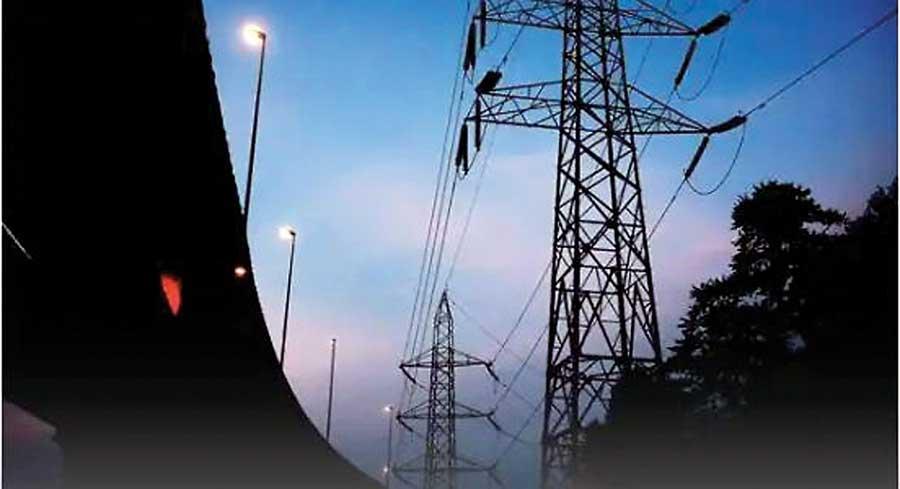Reply To:
Name - Reply Comment
Last Updated : 2024-05-20 14:52:00

The Electricity Bill is officially published in the Gazette and is yet to be presented to the Parliament. This article restricts to Indo-Sri Lanka Grid Connectivityfacilitated by the proposed law and its impact on Sri Lanka.
Motives of the States
On 22nd October, President Ranil Wickramasinghe disclosed that India’s electricity system would be connected with Sri Lanka’s electricity system. The Power and Energy Minister also expressed views on plans to connect the grids of the two countries by 2030. Sri Lankan High Commissioner to India, Milinda Moragoda, in his 27-page Integrated Country Strategy (ICS) for Sri Lanka Diplomatic Missions in India for 2021/2023, highlighted on grid connectivity between the two countries. Hence both governments act with one mindset on this matter.
expressed views on plans to connect the grids of the two countries by 2030. Sri Lankan High Commissioner to India, Milinda Moragoda, in his 27-page Integrated Country Strategy (ICS) for Sri Lanka Diplomatic Missions in India for 2021/2023, highlighted on grid connectivity between the two countries. Hence both governments act with one mindset on this matter.
Segregation
The preamble of the Bill details the need to reform the existing institutional framework of the Electricity Industry by designing it to attract new investments. Accordingly, the activities of the Electricity Industry currently vested in a single government-owned entity would be segregated by the incorporation of independent corporate entities.
With the operation of the new law, the Ceylon Electricity Board Act, No.17 of 1969 shall stand repealed. The activities relating to hydro-electricity generation, thermal electricity generation and renewable energy generation, which are presently vested with the Ceylon Electricity Board, shall (within six months from the date of the Speaker’s certification of the Bill) be re-structured and vested in entities incorporated under the Companies Act, No.07 of 2007 i.e.:-“
(a) A company to take over the hydro-power generation assets of the Ceylon Electricity Board; (b) A company to take over the coal power plant owned and operated by the Ceylon Electricity Board as well as Lanka Coal Company;
(c) A company to take over the thermal generation assets of the Ceylon Electricity Board;
(d) A company to take over the wind power plant owned and operated by the Ceylon Electricity Board;
(e) A company to take over the functions of the Ceylon Electricity Board relating to the development, maintenance and operation of the physical infrastructure that makes up the National Grid of Sri Lanka;
(f) A company to take over the functions of the Ceylon Electricity Board relating to generation scheduling, commitment and economic dispatch of generating plants and functions relating to the planning of future electricity and transmission demands;
(g) Separate companies to take over the functions of the distribution divisions of the Ceylon Electricity Board; and
(h) Such a number of companies as shall be required for managing the residual functions of the Ceylon Electricity Board”.
The wholesale electricity market shall be made fully autonomous and competitive. The National Systems Operator shall be responsible for the operation of the wholesale electricity market. It will be a public company incorporated under the Companies Act, where the SL Government holds 100% of its shares. The regulator of the electricity industry will be the Public Utilities Commission of Sri Lanka. The National Transmission Network Service Provider (a public company where the government holds more than 50% of shares) would be responsible for the maintenance of the National Transmission Network (National Grid) of Sri Lanka. A National Electricity Advisory Council will be vested with the responsibility of advising the Minister on formulating the National Electricity Policy. A secretariat named the Power Sector Reforms Secretariat would be established to implement the reform process.
Grid Connectivity
The Bill for the first time introduces the definition of “Regional Market” to mean “the electricity market that is in operation outside the territory of Sri Lanka and within the South Asian Region”. The National Transmission Network Service Provider can (upon a request by the National System Operator) connect with the regional transmission networks with the approval of the Cabinet of Ministers. The new law permits for procuring electricity in bulk from the suppliers of the regional markets and engaging in electricity trading with such markets. These and several other clauses in the Bill authorize Grid connectivity with India (the closest electricity market operational outside Sri Lanka).
Competency for Grid Connectivity
The proposed law will formulate the legal framework of the domestic electricity industry. Unfortunately, the bill carries no practical mechanism for interconnectivity and coordination between the different entities created in the scattered web. Further the entire law is silent on important administrative issues such as the accountability of the officials-in-charge of such entities, the majority being Companies. Hence, it is difficult to trace a line of responsibility through the scheme of the act, especially for any issue having national or regional impact. On the contrary, such entities are enjoying immense autonomy to operate, only subject to the conditions of the relevant licenses. This fragile system is no way near in competency to trade with the world’s third largest producer of electricity, India, which is governed by a strong and well-coordinated legal framework.
Grid Connection; In Whose Favour?
Sri Lanka should be mindful of the power generation deficit between the two countries. Like for any other commodity, the country that produces more takes the advantage of the grid connection. India presently exports electricity to Bangladesh, Myanmar and Nepal.
A study conducted by the national laboratory of the U.S. Department of Energy’s Office of Energy Efficiency & Renewable Energy operated by the Alliance for Sustainable Energy, LLC (with the participation of officials of the CEB) on the projected impact of power system operations for 2025 of cross-border electricity trade between India and Sri Lanka revealed that the National Security of Supply, a concern specific to Cross Boarder Energy Trade, is related to the willingness of a country to rely on external agents for their electricity supply. With no non-technical barriers to trade, Sri Lanka could potentially rely heavily on imports to meet domestic electricity needs. Analyzing the total amount each country would import across the Direct Current tie each year in energy and as a fraction of that country’s annual load (on statistics in 2018) the study finds that Sri Lanka would import 3.2 TWh, accounting to 14% of its annual electricity demand. Referring to the annual totals, the report states that the load met by imports in any one period can be as high as 25%.
The report further states, “However, the DC tie also creates new operational and national security risks. While the DC tie can help address contingencies in Sri Lanka, this service is dependent on a coordinated response between the countries. The DC tie also helps Sri Lanka meet 12% of its annual load in the medium hydro year, raising Sri Lanka’s reliance on imports”.
Counterproductive Purpose
Accordingly, the new law moves away from self-sufficiency of electricity generation and introduces a new norm of reliance on importing electricity to meet domestic needs. This trend would discourage the government from taking interest in expanding power generation capacity, resulting in a deviation from that responsibility.
On the other hand, the Bill is not addressing any of the currently identified issues faced in the domestic industry. These include policy inconsistencies, the non-implementation of a long-term-generation plan, inefficient energy use by industries, unsolicited projects, limited renewable energy projects, non-scientific tariff policies, etc, which could conveniently be addressed within the scope of the existing law by removing elements of corruption, inefficiency and placing correct people at correct places. Experts have opined that this law would degrade the standards and efficiency of the domestic industry. Therefore, who truly are backing the proposed law remains a mystery.
Threat to the Unitary State and National Security
Under the 13th Amendment, development, conservation and management of sites and facilities in the province for the generation and promotion of electrical energy (other than hydro-electric power and power generated to feed the national grid) is a provincial council subject. The operative impact of the new law has to be considered with other MOUs that SL had entered with India, such as that entrusting to Indian investments the developing of the Eastern Province. The Bill permits for private power generation plants that could be built within specific provinces.
It further enables the National Transmission Network Service Provider for interconnection by transmission assets built by private investors to the National Grid of Sri Lanka on a non-discriminatory basis. Experts in the field opine that such privately owned transmission lines, though could legally be considered as part of the National Grid are technically capable of operating as separated power lines. This paves way for all three operations, i.e. generation, transmission and distribution to take place at the provincial level. This is the opposite of what India was practicing for decades; i.e.; connecting regional/state transmission grids to the National Grid.
Hence, in the backdrop of the 13th Amendment, and with Indian interest in making Trincomalee a power hub, Indian investments in the N-E provinces, and dependency on Indian electricity imports, the proposed law adds another threat to the Unitary State and National Security of the Country.
Grid connectivity would also have a serious impact on the Economic Sovereignty of the People. The present government has no mandate obtained from the people to execute such activity.
Ed Rowlands Monday, 18 December 2023 03:41 AM
It's understandable that there will be concerns about a new initiative such as this, but India already exports power to Nepal, Bangladesh, etc. Has the SL Government examined the process and procedures adopted by these countries and designed a similar system for Sri Lanka?
Electrical engineer Friday, 22 December 2023 06:50 PM
Oh go on man. Get the grid connectivity as soon as possible please.
Economist Friday, 22 December 2023 06:53 PM
This is why a two state solution needed.

Add comment
Comments will be edited (grammar, spelling and slang) and authorized at the discretion of Daily Mirror online. The website also has the right not to publish selected comments.
Reply To:
Name - Reply Comment
The state-run loss-making State Mortgage & Investment Bank (SMIB) has reveale
US authorities are currently reviewing the manifest of every cargo aboard MV
On March 26, a couple arriving from Thailand was arrested with 88 live animal
According to villagers from Naula-Moragolla out of 105 families 80 can afford
17 May 2024 - 0 - 143
5 hours ago
5 hours ago